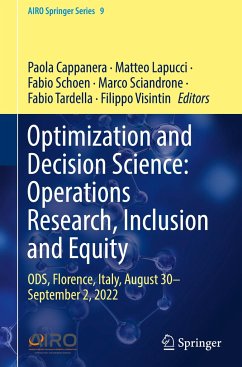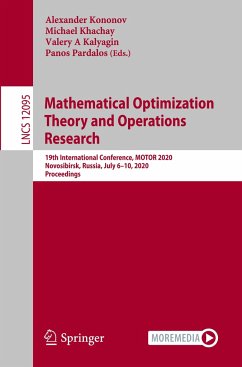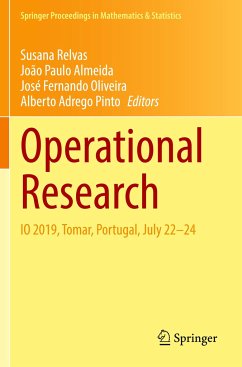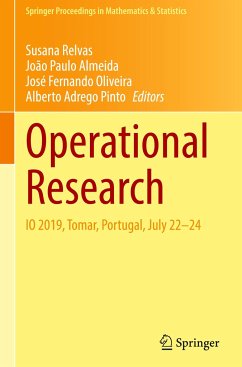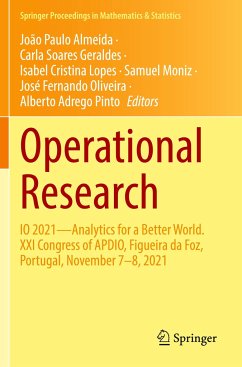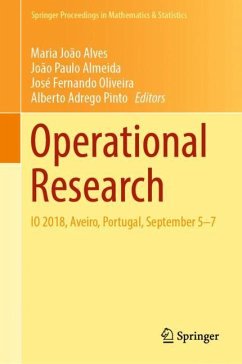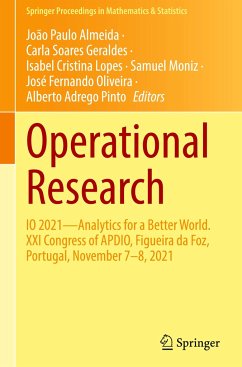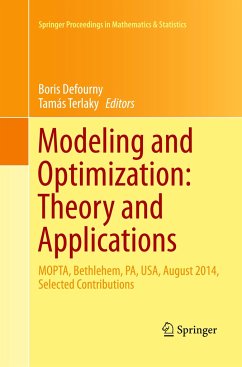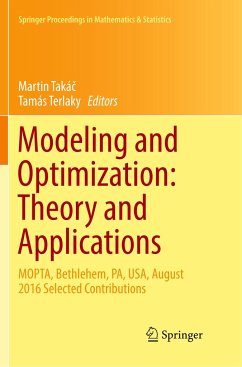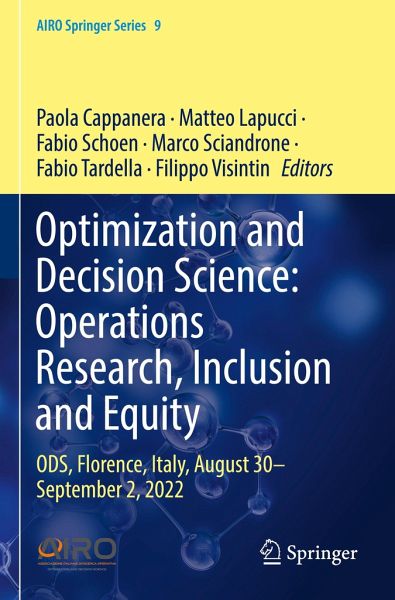
Optimization and Decision Science: Operations Research, Inclusion and Equity
ODS, Florence, Italy, August 30-September 2, 2022
Herausgegeben: Cappanera, Paola; Lapucci, Matteo; Schoen, Fabio; Sciandrone, Marco; Tardella, Fabio; Visintin, Filippo
Versandkostenfrei!
Versandfertig in 6-10 Tagen
174,99 €
inkl. MwSt.

PAYBACK Punkte
87 °P sammeln!
This volume collects peer-reviewed short papers presented at the Optimization and Decision Science conference (ODS 2022) held in Florence (Italy) from August 30th to September 2nd, 2022, organized by the Global Optimization Laboratory within the University of Florence and AIRO (the Italian Association for Operations Research).The book includes contributions in the fields of operations research, optimization, problem solving, decision making and their applications in the most diverse domains. Moreover, a special focus is set on the challenging theme Operations Research: inclusion and equity.The...
This volume collects peer-reviewed short papers presented at the Optimization and Decision Science conference (ODS 2022) held in Florence (Italy) from August 30th to September 2nd, 2022, organized by the Global Optimization Laboratory within the University of Florence and AIRO (the Italian Association for Operations Research).
The book includes contributions in the fields of operations research, optimization, problem solving, decision making and their applications in the most diverse domains. Moreover, a special focus is set on the challenging theme Operations Research: inclusion and equity.
The work offers 30 contributions, covering a wide spectrum of methodologies and applications. Specifically, they feature the following topics: (i) Variational Inequalities, Equilibria and Games, (ii) Optimization and Machine Learning, (iii) Global Optimization, (iv) Optimization under Uncertainty, (v) Combinatorial Optimization, (vi) Transportationand Mobility, (vii) Health Care Management, and (viii) Applications.
This book is primarily addressed to researchers and PhD students of the operations research community. However, due to its interdisciplinary content, it will be of high interest for other closely related research communities.
The book includes contributions in the fields of operations research, optimization, problem solving, decision making and their applications in the most diverse domains. Moreover, a special focus is set on the challenging theme Operations Research: inclusion and equity.
The work offers 30 contributions, covering a wide spectrum of methodologies and applications. Specifically, they feature the following topics: (i) Variational Inequalities, Equilibria and Games, (ii) Optimization and Machine Learning, (iii) Global Optimization, (iv) Optimization under Uncertainty, (v) Combinatorial Optimization, (vi) Transportationand Mobility, (vii) Health Care Management, and (viii) Applications.
This book is primarily addressed to researchers and PhD students of the operations research community. However, due to its interdisciplinary content, it will be of high interest for other closely related research communities.



